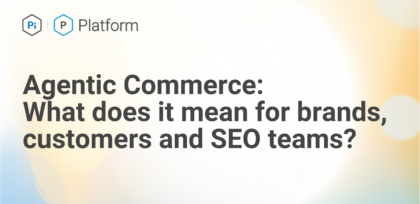What does the Google Shopping fine mean for the rest of search?
12 Jul 2017
Following a seven-year investigation, after complaints from the likes of Microsoft and British price comparison service Foundem, the EU Commission has fined Google £2.1bn for surfacing and giving priority to its own Google Shopping services over rival comparison sites.
Contents of this article
- Google Shopping successes
- Three unfair competitive advantages
- Pride of place location
- Inherently visual
- Above the fold mobile presence
- What’s changed since the Google Shopping fine?
- Changes in the composition of search results
- What does the Google Shopping fine mean for other primary services?
- Google Flights
- Google Hotels
- Google Maps
- Will Google continue to surface its own online inventory?
"What Google has done is illegal under EU antitrust rules. It has denied other companies the chance to compete on their merits and to innovate, and most importantly it has denied European consumers the benefits of competition, genuine choice and innovation."
European Union's Competition Commissioner
Margrethe Vestager
Google Shopping successes
Google Shopping saw significant traffic uplift while rivals lost out
Google Shopping: 2008 - 2017UK +45 fold traffic Germany +35 fold traffic France +19 fold traffic | Rival websites: 2008 - 2017UK - 85% traffic Germany - 92% traffic France - 80% traffic |
Three unfair competitive advantages
Pride of place search real estate
A recent study by Search Engine Land asserts that Google Shopping accounted for 74% of all clicked-on retail ads within Google.
If this is the case, then it’s fair to assume that Google’s ‘Pride of place’ location at the top of the search result gave it the ability to hijack custom and gain an unfair competitive advantage.
Inherently more visual than standard paid media
A typical Google Shopping ad
| A featured Google Shopping ad
|
Example featured Google Shopping ad:
While some standard text ads can display surplus information, such as a ‘Rating breakdown’ and integrated links to related product offerings (seen in the image below), the power of imagery in Google Shopping undoubtedly made a marked difference.

And organic listings have an even lower competitive advantage. Product information, while still featured, only comes in the form of a meta-description which isn’t styled or easy to read.

Dominated above the fold presence on mobile
Google Shopping 'Product Listing Ads' (or PLAs) formerly appeared at the top of the search results, and commandeered above the fold presence in Google mobile search results, meaning users had to actively scroll to discover organic listings and other paid ads.
So, what’s changed since the Google Shopping fine?
Google has been told it must “Apply the same processes and methods to position and display rival comparison shopping services in Google's search result pages as it gives to its own comparison shopping service".
It’s expected to make significant changes within three months to avoid paying $14m in fines every day thereafter.
Google founded its comparison shopping service in 2004 and has since invested large sums in its development, so is unlikely to make radical changes overnight, especially given that it “Respectfully disagrees” with the claims.
However, we’ve seen some subtle differences in the composition of search results since the declaration of the Google Shopping fine.
Results move from left back to the right-hand side following Google Shopping fine
It looks like Google has moved its Shopping results from the left hand side, to the old school right hand side after the mega fine pic.twitter.com/0nWgRykTQX
— Sam Silverwood-Cope (@scopey123) June 28, 2017
What does the Google Shopping fine mean for other primary services?
Google Flights
Google earned an estimated USD12.2bn from travel advertisers in 2016 - that’s already twice the size of Expedia’s revenue.
Google is expected to receive roughly $6.1 billion in ad revenue from Priceline and Expedia alone. These are, by far, the top players, and according to our proprietary share of voice data, own 60% of the entire market (see chart below).
What's more, they are 6th and 10th largest internet companies by revenue, respectively, and Google still manages to exceed this.
Google Hotels
Google’s hotel-related searches jumped 25% YOY in July 2016. Competitors, such as Tripadvisor, implicitly acknowledge that Google is stealing market share.
“Of course, Google is taking share from TripAdvisor. Google sits upstream from TripAdvisor and they are intercepting more consumers into their Hotel Ads product.”
Kayak CEO
Stephen Hafner
Google Maps
Morgan Stanley predicts that Google Maps will generate $1.5 billion in incremental revenue in 2017, while Baird Equity Research asserts that Google Maps could be a $5 billion business by 2020.
"As Google unlocks the revenue potential for Maps, there may be inevitable overlaps with existing local services providers, in particular, as Google expands the amount of user-generated local information with additional advertising and transaction services (e.g., food delivery, reservations, etc.), we foresee increasing competitive threats to Yelp, TripAdvisor, Groupon, Angie’s List and Grubhub."
Baird Equity Research
Will Google continue to surface its own online inventory?
Google’s overall advertising revenue generated $79.4 billion in 2016, accounting for nearly 88% of its parent company’s revenue.
So it’s in Google’s interest to innovate new ways to promote media partners above all other results, as this is its greatest source of revenue.
As it continues to integrate products and services into its own centralized offering, Google undercuts the value of multiple brands across multiple markets.
Based on the figures, if Google continues to popularize its own business, there is little doubt in anyone’s mind that it will be seeing more fines in the not too distant future.
But will the configuration of the search results see a dramatic shift? By the looks of it, not really.
For more information on the share of voice data featured in this article, book a demo of our Market Intelligence platform.
Never miss a post
Join our mailing list and have our SEO news delivered straight to your inbox.







